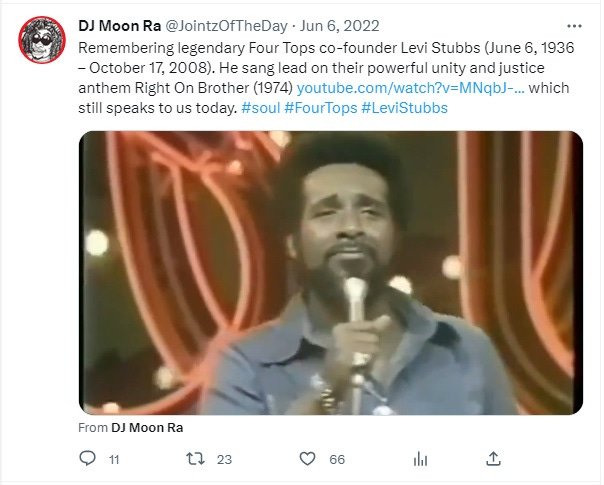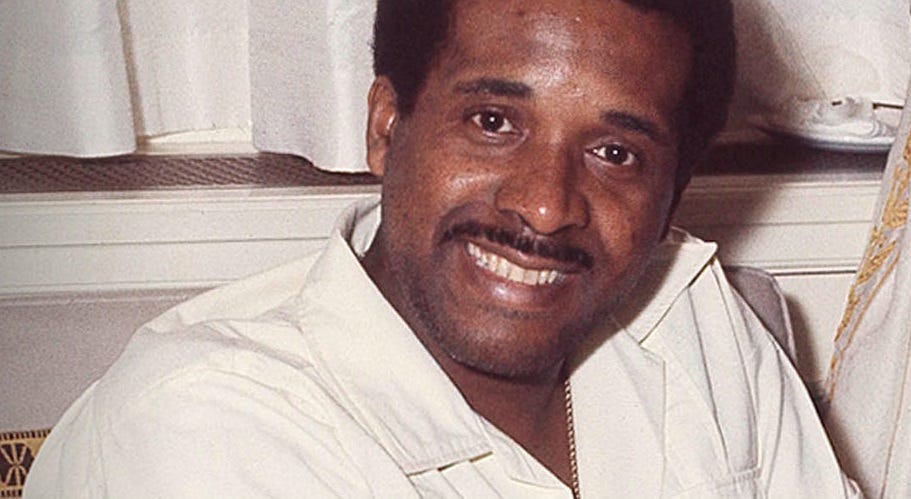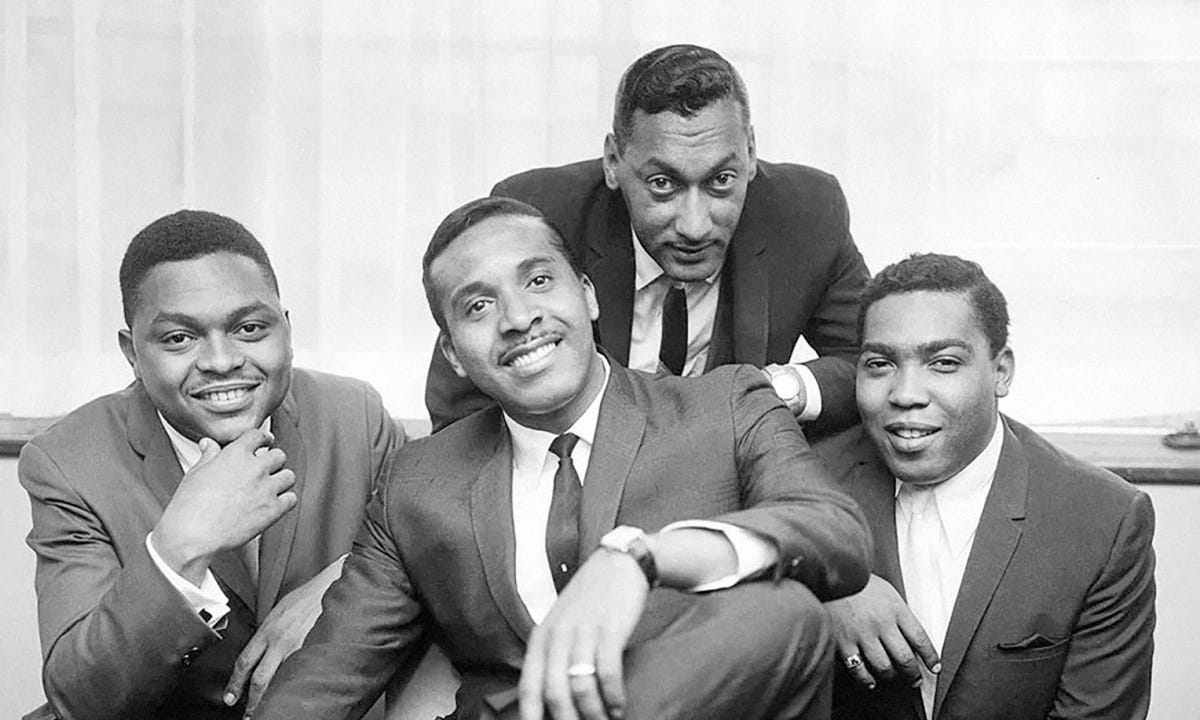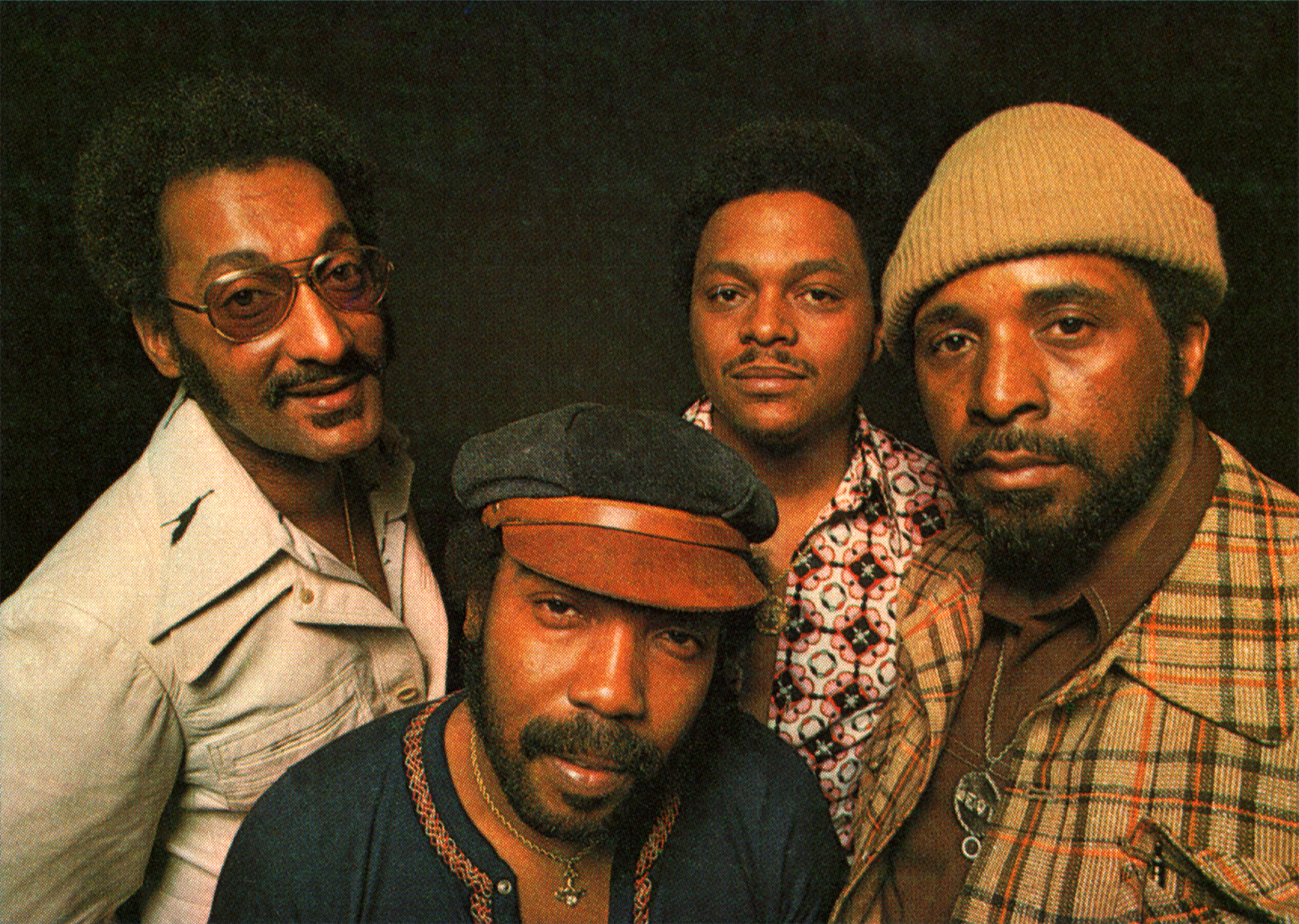Levi Stubbs (June 6, 1936 – October 17, 2008) – Right On Brother (1974)
The Four Tops' lead singer shone on this powerful anthem calling for unity and justice that our world needs today more than ever.
Watch full video on Twitter.
View most updated version of this post on Substack.
Levi Stubbs was the lead singer of Motown legends the Four Tops, who performed together with the same lineup for over four decades from 1953-1997 until the death of original member Lawrence Payton. Stubbs’s powerful baritone vocals set the Tops apart from many other vocal groups of their era which were mainly fronted by tenors.
Born in Detroit, Levi Stubbles attended Pershing High where he became friends with classmate Abdul “Duke” Fakir. At a birthday party in 1953, the two performed with two students from nearby Northern High, Renaldo “Obie” Benson and Lawrence Payton. The four singers formed a quartet soon afterwards, originally called the Four Aims. In 1956 they signed to Chess Records and became the Four Tops. In 1963, Berry Gordy convinced the Tops to sign with Motown.
Their first Motown single was a hit. “Baby I Need Your Loving” (1964) was produced by Brian Holland and Lamont Dozier, and co-written by the two of them along with Eddie Holland. It made it to #11 on the Billboard Hot 100.
The following year, Holland-Dozier-Holland crafted their breakthrough song, the massive hit “I Can't Help Myself (Sugar Pie Honey Bunch).” It spent nine weeks at #1 R&B, and also reached #1 on the Hot 100. Billboard named it the biggest R&B single of the year and second biggest pop single.
“I Can't Help Myself” indirectly influenced the development of the Northern Soul movement in the UK, although it was too mainstream to be popular in a scene which prized obscure records over hits. But its fast-paced tempo inspired countless other American R&B singers and groups to record similarly upbeat songs over the next few years. It was these uptempo, so-called “stompers” that Northern Soul fans fell in love with, mostly overlooked records by lesser known artists.
Their follow up single “It’s The Same Old Song,” which was supposedly written, recorded, and released within a 24-hour period in early July, 1965, hit #2 R&B and #5 pop. The next year, “Reach Out I'll Be There” (1966) again went to #1 on both the R&B and pop charts, eclipsing the success of “I Can’t Help Myself” and becoming the Tops’ signature song.
Stubbs sang lead on the Holland-Dozier-Holland classic “7 Rooms of Gloom,” released as a single on May 2, 1967. It was a #10 R&B hit, and peaked at #14 on the Hot 100. Motown produced a promotional film for the song, featuring the group exploring an empty Detroit “house of stone” haunted by the ghost of a lost love. Later in 1967, Holland-Dozier-Holland left Motown. Every remaining producer at Motown tried their hand at working with the group, but their hits dried up.
Eventually, in the early 70s the Tops left Motown for ABC Records. Their third album for the label, Meeting of the Minds (1974) featured Stubbs’ lead vocals on the powerful unity and justice anthem “Right On Brother.” It was co-written by Dennis Lambert and Brian Potter, who co-produced the LP with Steve Barri.
For the soundtrack to the 1979 cult basketball comedy The Fish That Saved Pittsburgh, the Tops contributed the superb jam “Chance Of A Lifetime.”
It was produced by Philly maestro Thom Bell, who co-wrote it along with his nephew LeRoy Bell and Casey James (aka Bell and James of “Livin’ It Up (Friday Night)” fame.)
#soul #funk #FourTops #LeviStubbs








